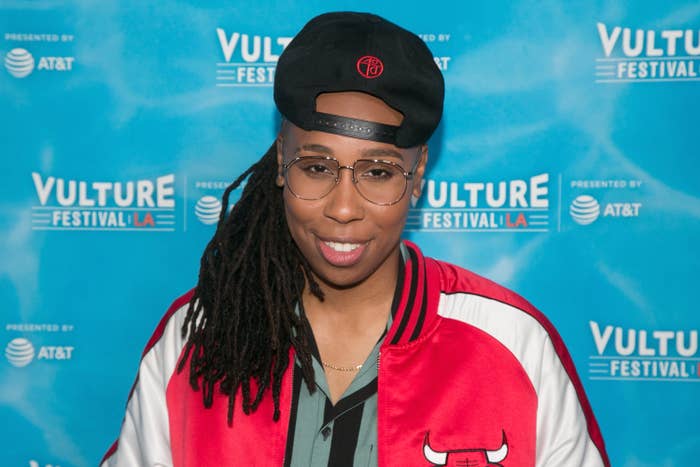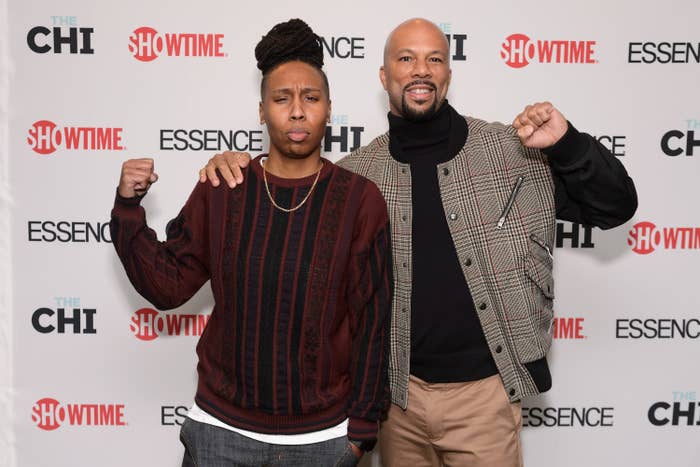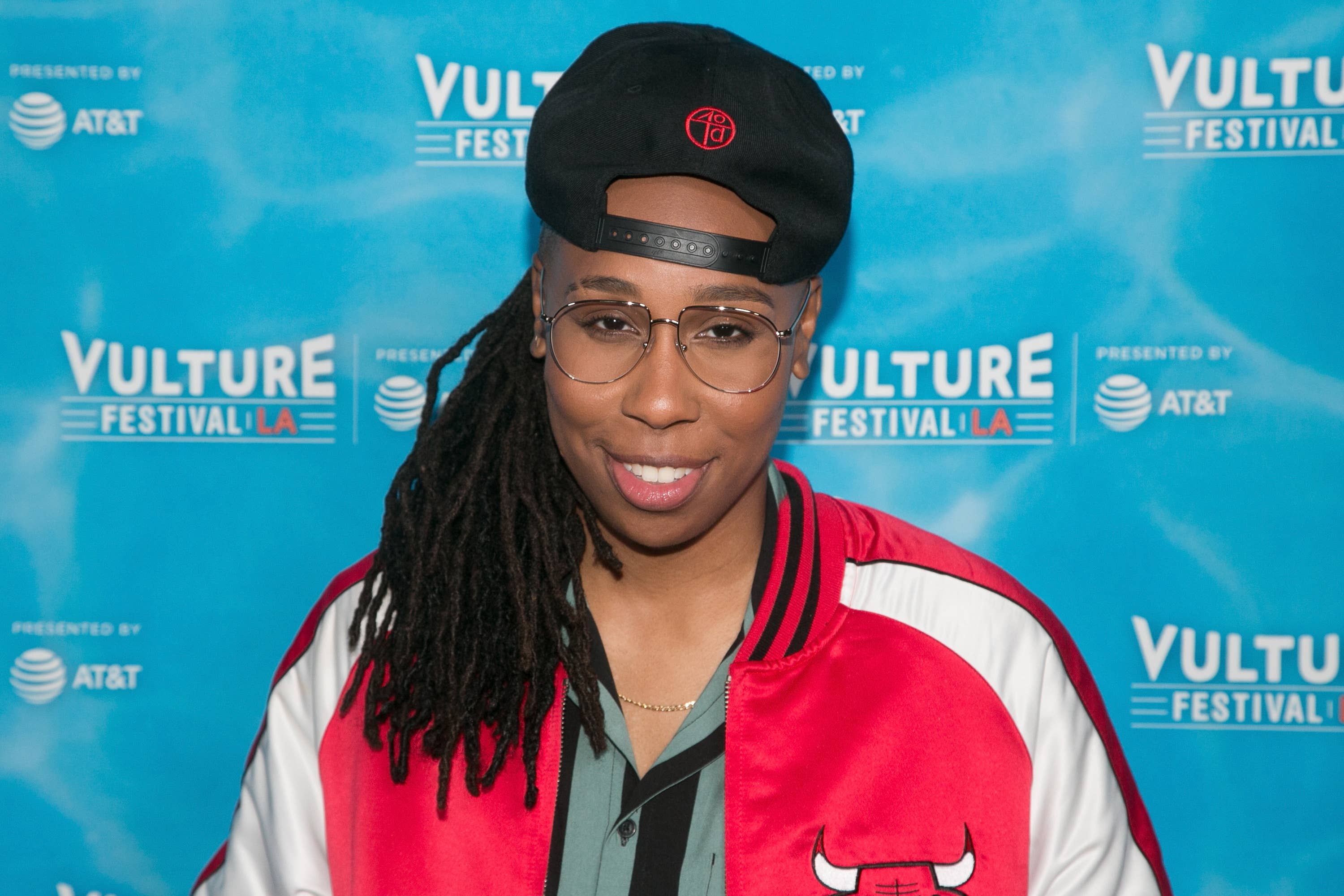
Television writer Lena Waithe has a knack for creating empathetic moments out of scenarios that may seem foreign to the general population.
Last year, she won an Emmy for co-writing an episode of the Netflix comedy Master of None with star Aziz Ansari that was based on her own experiences coming out to her mother. This year brings Waithe’s new project, a drama called The Chi that premieres this Sunday on Showtime. And while this story is, ultimately, a work of fiction, it did grow out of some truth: Specifically, the fact that it seemed the reporters who were covering in her hometown of Chicago during TV news broadcasts in 2014 and 2015 were jaded, opinionated, and disconnected.
“I felt like the people who were reporting on the stories just weren’t connecting to the city in any way,” Waithe recalls. “They didn’t know the people and I think they were just sort of talking about it like it was a jungle; these were just sort of hooligans running around with no hearts and no souls.”
So Waithe, who was also reading a lot of writing by cultural historian and critic James Baldwin at the time, decided to make a series about the stories the nightly news wasn’t telling. And while there are some small parallels—characters like Brandon (played by Jason Mitchell), a chef trying to make something of himself, and Coogie (played by Jahking Guillory), his opportunistic little brother, are both named for friends from her childhood—she says her real goal was to “create these characters that are human and interesting and living in a city that was riddled with turmoil and gun violence and yet, they still have to live their day-to-day lives. They have families and they have brothers and they have kids and they go to school and they have dreams.”
In an interview with Complex, Waithe talks about her writing process, the art of creating detailed character descriptions for a large ensemble, and why it’s more important than ever to have unique voices on television.
Lots of dramas have bits of comedy in it. But, there’s very little out-right funny moments in this show—particularly in the first episode. After working on Masters of None, was it hard for you to switch gears tonally as a writer?
No, funnily enough. There’s definitely levity there [in the first episode] and there’s more to come… but that’s just like me and that’s how I see the world. The truth is, some of the craziest times in our lives have crazy moments. You might think it’s crazy, but it’s kind of funny. And that’s how I look at life. I think my natural comedic hand sort of shows up organically here and there. It’s never forced and it makes sense where it feels human. And so, that was really my mission. I wanted to make sure it feels honest.
Some reviews and news stories will focus on the male leads like Common and Jason Mitchell. But it’s really the female characters in the show who are driving the action from behind the scenes. Talk about why you chose to show this.
I actually don’t like saying “lead character,” which is an interesting thing. If you say there’s a lead, then there has to be someone to follow. I actually like to refer to this show as a multi-protagonist show… I think it’s so trite to say you have lead characters. It’s like someone saying I’m the lead in my life. My fiancée [Alana Mayo is] the lead sometimes. Sometimes my mom is. That’s what life is.

And the women, in my opinion—especially black women—are really the backbone in our community. And I wanted to show that and I definitely think that the women come forward the more you watch the series because they really play such an important part in these guys’ lives. For me, when I was doing the character development, I was like, Who’s the woman—or women—in this character’s life?
The women are there. And they’re really important if you’re paying attention. I’m a black woman, so I’m obviously not going to write something where women aren’t at the forefront. But, I really wanted to portray them in an honest way in these men’s lives and not treat them like second-class citizens in the show.
Did you want to get into this business to tell stories like this or like the ones you worked on for Master of None?
I got into the business because I love writing. When it came down to finding my voice, which every writer has to take time to do, I think I realized I write black people very well. I write us in a very honest way and I want to hear the way we really talk. I don’t pull any punches and I don’t sugarcoat. I just like to make things human. Sometimes, that’s not pretty. Sometimes it is.
At the end of the first episode, there’s a moment where Brandon tells Kevin (played by Alex R. Hibbert) not to call him the N word. Was it hard to write scenes like that?
That’s my voice. That’s me trying to pump in some truth into people’s living rooms. If you’re not a black person and not walking in my shoes and from Chicago, why would you write that? What would compel you to write that line? Nothing. It’s all going to be salacious and to get a reaction. That’s not why I write and create these characters. They are more than characters on a page to me; they’re reflections. They’re pieces of me. I try to put myself on the page and in your living room so that you can get a sense of what Chicago is really like.
They are more than characters on a page to me; they’re reflections. They’re pieces of me. I try to put myself on the page and in your living room so that you can get a sense of what Chicago is really like.
In terms of it being hard [to write], a lot of people are like Brandon and who are like me. They go between two worlds. They hang out with their Black friends at night, but during the day your boss don’t look like you [and] he don’t speak your language. You’ve got to learn how to navigate that.
It’s classic Barack Obama. He’s a brother through and through. We can tell. He’s definitely one of us. But he’s also [saying] let me go over here and talk this way and play this game and then we can get this done. We all have a bit of Barack Obama in us.
There’s been a lot of talk about diversity on screen and the types of roles we’re starting to see for African Americans. But is there something that Hollywood needs to know to do better?
There’s going to be a lot more younger and people of color creating shows. And there’s going to be people from different walks of life—people from the trans community and people who are gay and people who are Latino. That’s my hope. I hope more of these people are starting to tell their story. I think these networks and studios are going to see that there’s profitability in this. We want to help you sell your stories.
All I ask is that you let them tell their stories. Don’t water it down. Don’t bring somebody in to take their voice out of their show or movie. Let them lead the way.
I would never want to come in and rewrite a trans person. I would never want to come in and rewrite a Native American woman. I would never want to rewrite a person with disabilities because that’s not my experience. I can support that person and say whatever you need; help us to make sure you tell your story in the best possible way… They don’t need someone to come in and say let’s make it for broader audiences. Nobody wants that anymore. They want it real, they want it true and they want it straight from the source.
Hollywood is also going through a time of self reflection because of the deluge of sexual assault and misconduct allegations against powerful men in the industry like producer Harvey Weinstein and comedian Louis C.K. Do you think anything positive will come from this?
We need to do better; we as an industry and as a country. It’s not just Hollywood where this is happening and it’s not just sexual harassment. We have issues with racism and transphobia and Islamophobia and sexism. There’s so many things we need to handle as a group. It’s not just taking Harvey or Louis and saying we’re going to fire this guy. That’s not going to fix the problem. Does it help? Sure. But we’re not going to the root.
We’ve got to really go to the root of this and make sure we’re not growing any more of those kind of people in our industry or supporting those kind of people in our industry. We’ve got to make sure that’s not okay. We’ve got to say, look, time’s up on that. We’ve got to change the dynamic of the boardrooms, of the writer’s rooms, of these sets, and making sure that everyone has a safe and healthy and happy work environment.

